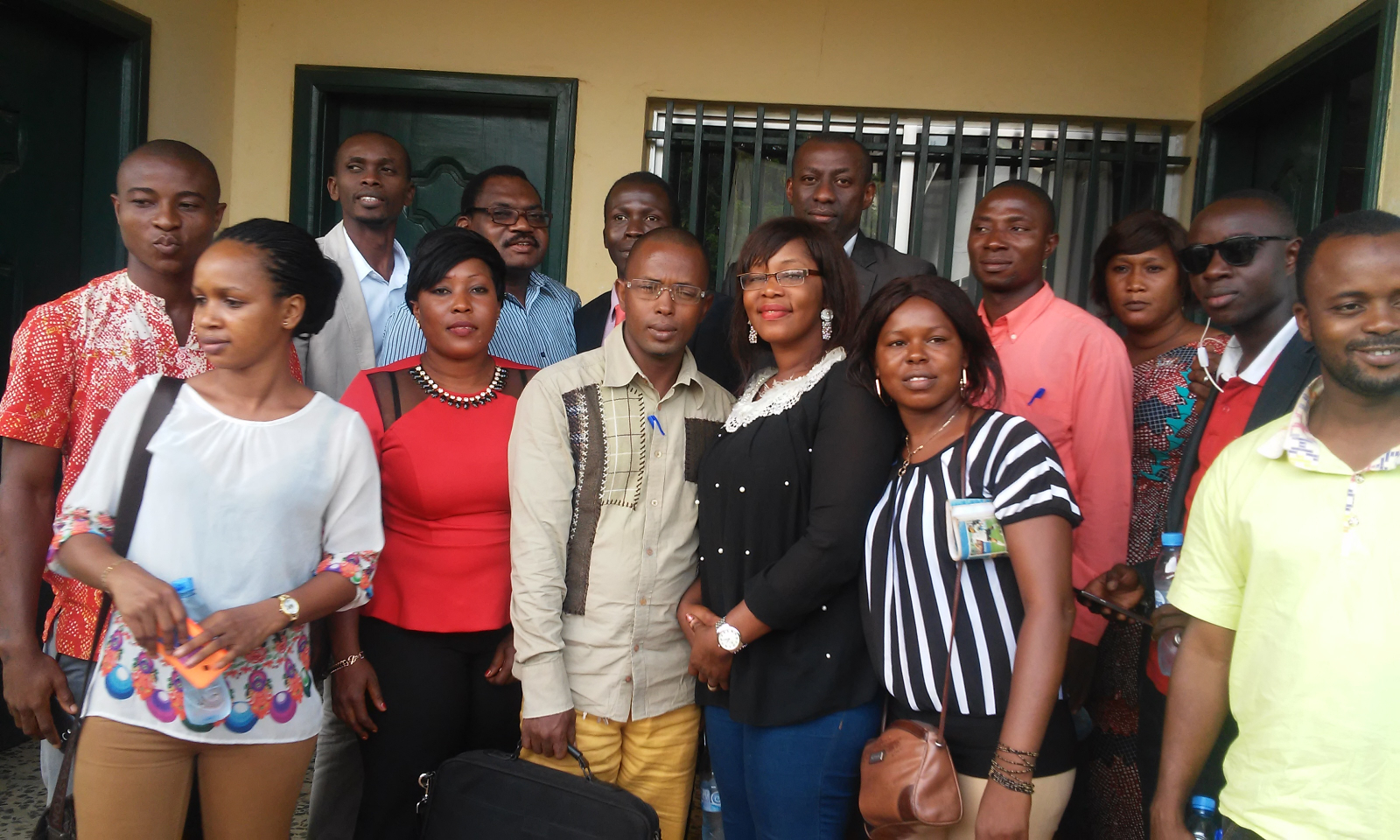
Participants in Conakry pause for a picture during NDI's leadership and communication within political parties training.
SHARE
ISSUES
Approximately 60 percent of Guinea’s population is under the age of 24, but young people in the West African nation continue to be underrepresented in politics. Their interests and priorities are largely ignored in policies and electoral strategies. More often than not, youth interested in politics find themselves marginalized and feel disenfranchised—a feeling that is shared by many citizens of all age groups in Guinea. Within political parties themselves, Guinean youth face barriers like ageism, nepotism and ethnocentrism, making it difficult to rise within party ranks, to influence decisions and to represent their parties as candidates in elections. Guinean youth often lack skills and experience around communication strategies in political environments and are not familiar with how to get candidates on electoral lists.
Since 2008, NDI has been working with the multiparty political youth coalition, National Youth Forum (Forum National des Jeunes - FONAJEP) to improve youth representation in political life. In anticipation of local elections, NDI and FONAJEP have identified areas to support youth political party members to develop their capacities as party leaders and as candidates in future elections.
To this end, from March 20 to April 6, 2017, NDI organized a series of trainings about leadership and communication within political parties. The two-day trainings, led by consultant Theophile Folly Amouzou, took place in Guinea’s four geographic regions and the capital, Conakry. During the 14-day tour, 157 citizens under the age of 35, including 60 young women, attended, representing 16 parties in total. Through these trainings, political party youth learned about fundamental ideas of leadership, effective leaders within political parties and leadership development mechanisms for youth caucuses or movements. They also became better informed about fundamental communication concepts and skills, including meeting management and communication strategies in an electoral period.
Participants in Conakry in a break-out session during the training
For many participants, these trainings were their first opportunity to learn skills on effective leadership and communication in political parties, especially since their respective parties either have no training plans for members or never implemented existing training plans. As a result, almost all participants did not know basic rules, standards, and functioning of a political party in a democratic environment. Participants recommended ways to facilitate youth involvement in politics by developing capacity-building plans, conducting trainings on the electoral cycle and through electoral conflict management. Young political party members left the training eager to spread what they had learned with their peers.
The training sessions came at an opportune time, as they served as encouragement for young people to get involved in political affairs once political parties begin to reactivate their base for upcoming local elections.
One training participant wrote,
I do not like politics very much, but now I think it's really interesting and I think all young people of this country should follow politics.
Through information and skill-building, youth gain the tools and self-confidence to positively contribute to their country’s development, hold their politicians accountable and perhaps even influence politics from the inside. In the coming months, NDI will be working with political parties to help them incorporate priorities from youth and citizens around Guinea into issue-based party platforms, including issues that influence youth political participation.



